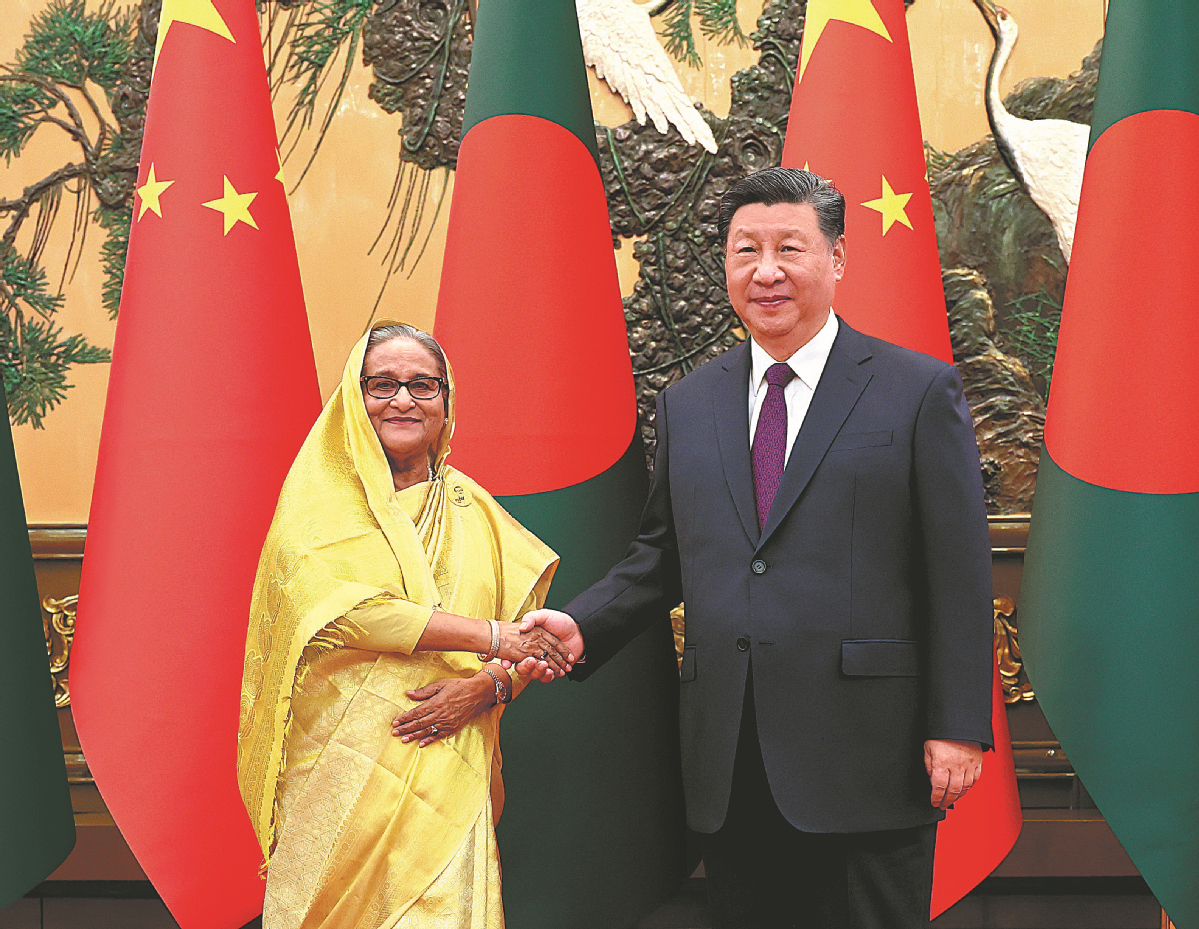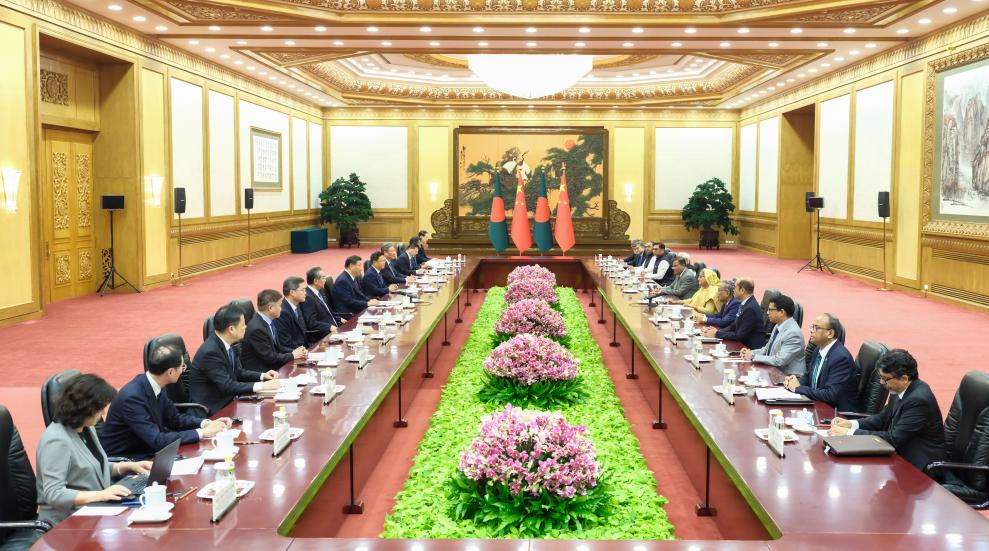




- BRNN
- BRI News
- BRNN News
- Database
Official Documents Polices and Regulations
Inter-government Documents International Cooperation BRI Countries
Business Guide Economic Data BRI Data
Trade
Investment Projects Latest projects
Cases - Content Pool

President Xi Jinping shakes hands with Bangladeshi Prime Minister Sheikh Hasina in Beijing on Wednesday. (FENG YONGBIN/CHINA DAILY)
China and Bangladesh elevated their relationship to a comprehensive strategic cooperative partnership on Wednesday during Bangladeshi Prime Minister Sheikh Hasina's visit to China, her first official trip to the country in five years.
President Xi Jinping emphasized that the two countries should carry forward their fine tradition of mutual support and deepen their political mutual trust during his meeting with Hasina in Beijing.
China supports Bangladesh in upholding an independent foreign policy, following a development path that suits its own national conditions, maintaining its sovereignty, independence and territorial integrity, and opposing any external interference, Xi said.
Hasina said that Bangladesh firmly adheres to the one-China principle and supports China in safeguarding its core interests.

President Xi Jinping meets with Prime Minister Sheikh Hasina of the People's Republic of Bangladesh at the Great Hall of the People in Beijing, July 10, 2024. (Photo/Xinhua)
The two leaders also pledged to further promote bilateral cooperation under the Belt and Road Initiative. Xi said that China hopes to deepen high-quality Belt and Road cooperation with Bangladesh, and Hasina responded by saying that Bangladesh will continue to actively participate in such cooperation.
China has built seven railways, 12 highways, 21 bridges and 31 power stations in Bangladesh, the first South Asian country to have signed a memorandum of understanding on Belt and Road cooperation with China.
Lin Minwang, assistant to the dean of the Institute of International Studies at Fudan University, said that Bangladesh "has always deemed China as one of its most important strategic partners".
Cooperation with China is a primary reason for the rapid growth of the South Asian country in recent years, said Lin, who is a researcher on South Asian studies.
The speedy development of infrastructure in Bangladesh, aided by Chinese companies over the past decade, has helped lower logistics costs and lay a solid foundation for the country's future growth, Lin added.
Xi told Hasina that China hopes to deepen bilateral cooperation in trade, investment and connectivity, and supports more Chinese companies in enhancing industrial investment cooperation with Bangladesh.
China is the largest trading partner of Bangladesh, while Bangladesh is China's second-largest trading partner in South Asia, according to the Foreign Ministry.
Hasina said that Bangladesh hopes to draw on China's development experience, and expand cooperation with China in trade, infrastructure and poverty reduction.
Lin, the researcher, said that Chinese companies have increased their investment in Bangladesh due to its strong economic performance, which will further consolidate trade between the two countries.
Also on Wednesday, Premier Li Qiang hosted a welcoming ceremony for Hasina and held talks with her in Beijing.
Li said that China will strengthen communication and coordination with Bangladesh, in order to oppose hegemony and power politics, and better uphold international fairness and justice as well as the common interests of developing countries.
After their talks, Li and Hasina witnessed the signing of multiple documents on bilateral cooperation in a number of fields, including trade, investment, the digital economy and health.
Both sides agreed to designate 2025, which marks the 50th anniversary of bilateral diplomatic relations, as the year of people-to-people exchanges between the two countries.
Cooperation between China and Bangladesh has developed steadily over the past five decades, and the two countries have seen frequent exchanges of high-level visits.
Hasina, who was reelected in January, previously visited China four times as Bangladeshi prime minister — in 1996, 2010, 2014 and 2019.

Tel:86-10-65368972, 86-10-65369967